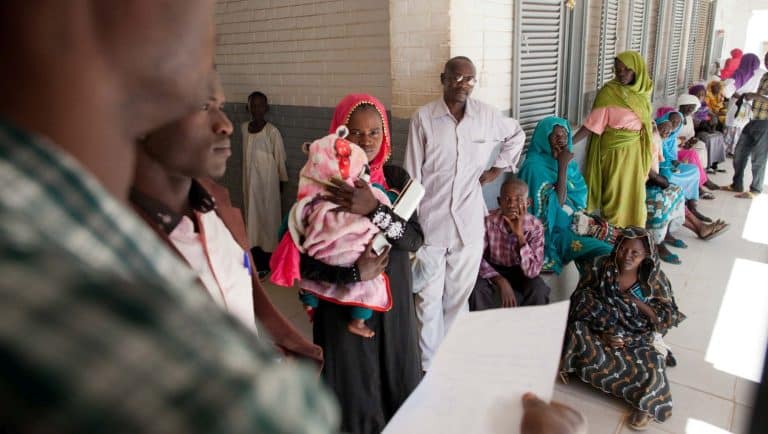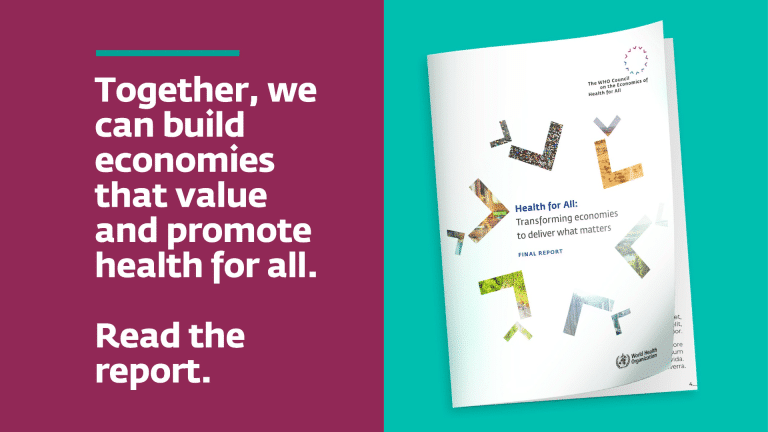
Improving healthcare, but for whom?
The International Finance Corporation (IFC) should increase its focus on health equity, so their private investments in healthcare promote universal access. Read more

The Covid-19 pandemic exposed the inadequacy of public health systems at many levels. Public healthcare systems, many of which suffered from years of austerity cuts, were worn out by the pandemic, while the global model of pharmaceutical production resulted in a deeply unequal distribution of Covid-19 vaccines. On top of that, years of prioritization of economic interests over sustainability have created an urgent need for the world to come to terms with the climate crisis. To face all these challenges, a strong change is necessary in the functioning of the current economic system.
In response to these big challenges, in 2020, the World Health Organization (WHO) established the Council on the Economics of Health for All, an all-female council composed of world-renowned progressive economists like Mariana Mazzucato, Jayati Ghosh and Stephanie Kelton. Its mission was to rethink how value in health and well-being is measured, produced and distributed across the economy. With the ultimate focus on achieving Health for All, it would propose recommendations to integrate value into all policies of economic growth, productivity and wealth.
The Council calls for a radical reorientation of economies for health, rejecting the “human capital” paradigm whereby a healthy population is merely an instrument for economic growth. Instead, it proposes viewing investments in global and public healthcare as crucial for a sustainable future, rather than a short-term cost.
The Council urges governments and international institutions to rethink their strategies for financing healthcare systems, pursue innovation in medical technologies like medicines and vaccines, and coordinate with global health institutions. It also emphasizes the importance of addressing other aspects of the economy that are often not considered in discussions on healthcare, like financial flows, debt, and fiscal and monetary policies. All of these can effectively open space on national budget to leverage public investments in health.
In only three years since its establishment, the Council has published four policy briefs, 17 articles, and many statements and other papers on topics ranging from intellectual property rights protection to planetary health, to healthcare system financing. On 23 May 2023, the Council published its final report containing its recommendations for policymakers to contribute to achieving health for all. Several of the recommendations in the report align with the advocacy messages that Wemos, along with other civil society organizations, has been championing for years.
The Council’s report mentions the necessity to regulate and govern private healthcare actors to ensure they cause no barriers to access or affordability of health services (page 19) which we underlined in many publications on the role of the private sector in healthcare. See, for example, our study ‘Improving healthcare, but for whom?‘.
It also suggests measures like debt suspension and wealth taxes to promote global financial justice and generate fiscal space for public healthcare (page 29). Such measures were especially highlighted in our latest ‘ Statement on Universal Health Coverage ‘ and ‘Statement on Pandemic Prevention, Preparedness and Response ‘, disseminated and pitched during the UN Multistakeholder Hearings on 8-9 May 2023.
Additionally, the report calls for rethinking the governance around pharmaceutical innovation, proposing measures like the intellectual property waiver and conditionalities attached to publicly funded research (page 40). In this regard, Wemos has been calling for overcoming intellectual property barriers, attaching conditions to public funding of research and development, and transparency of the market, ultimately aiming to improve global access to pharmaceutical products. See our position paper on regional production and our call for a meaningful Pandemic Accord .
Based on the Council’s recommendations, we hope that UN institutions, donors and country governments will follow these progressive measures. In particular, we expect the WHO to fulfill its prominent role in leading and engaging its member states to collectively implement these changes, paving the way towards a more accessible and sustainable global public health system.
Receive our newsletter